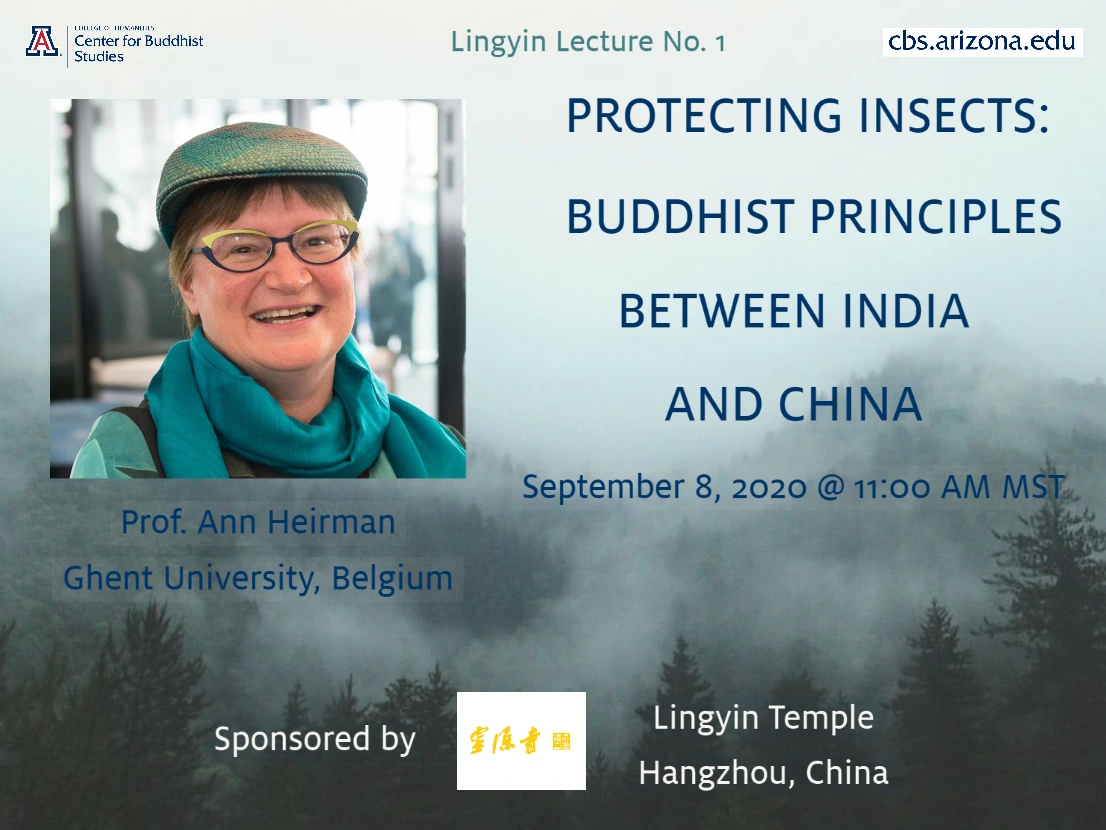
Prof. Ann Heirman, head of the Centre for Buddhist Studies, Ghent University, Belgium
September 8, 2020 at 11:00 AM Mountain Standard Time (MST)
Other time zones include:
11:00 AM (PST)
2:00 PM (EST)
2:00 AM, September 9 (BST) (Beijing)
7:00 PM (CST) (London)
Please verify the time in your area via a time zone calculator, such as: https://www.timeanddate.com/worldclock/converter.html.
To receive a link to the webinar, please sign up for our email list here: http://eepurl.com/gb2yaD. If you are already on our list, you will receive the link soon. This lecture will be conducted in English.
Against the background of guidelines on non-killing and developing ideas on the release of captured or domesticated animals, this lecture first focuses on how vinaya (disciplinary) texts deal with dangerous and/or annoying animals, particularly insects. It further addresses the Chinese responses to this difficult issue, particularly by one of the main vinaya masters of the Tang dynasty, Daoxuan 道宣 (596–667). Are there any circumstances in which insects may be killed, captured, or repelled? Or should they be endured and ignored, or even protected and cherished, at all times? Some insects produce economically valuable products, such as silk and honey; others, such as mosquitoes and bedbugs, are annoying or dangerous; and still others are innocent victims of essential human activities, such as earthworms that are killed when farmland is tilled. Yet, all of these are sentient beings that – according to Buddhist principles – should not be harmed or killed. How can one avoid inflicting harm and remain true to these basic principles of Buddhism?
Dr. Ann Heirman is professor of Chinese Language and Culture and head of the Centre for Buddhist Studies at Ghent University in Belgium. She has published extensively on Chinese Buddhist monasticism and the development of disciplinary rules, including Rules for Nuns according to the Dharmaguptakavinaya (Motilal Banarsidass, 2002), The Spread of Buddhism (Brill, edited volume with Stephan Peter Bumbacher, 2007), A Pure Mind in a Clean Body (with Mathieu Torck, Academia Press, 2012), and Buddhist Encounters and Identities Across East Asia (Brill, edited volume with Carmen Meinert and Christoph Anderl, 2018).
This lecture series is made possible thanks to the generous support from Lingyin Temple in Hangzhou, China. For more information about our lecture series, please visit our website: https://cbs.arizona.edu/lecture-series.

